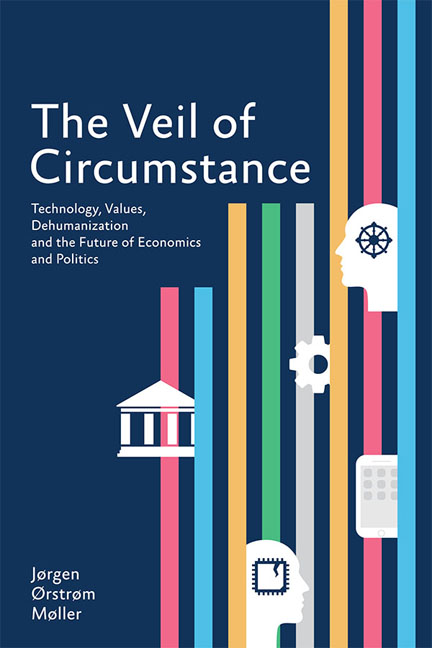 The Veil of Circumstance
The Veil of Circumstance from II - POLITICS
Published online by Cambridge University Press: 19 May 2017
This chapter addresses the political system that evolved in tandem with the industrial age — liberal representative democracy. It was a system that worked well for a long time, by gradually and cautiously enlarging the right to vote and the influence of the people on government. But today, growing inequality and anxieties induced by the ancillary effects of globalization threaten its survival, giving rise to nationalism and populism, even as politicians increasingly shy away from conveying unpopular messages to potential voters, while at the same time tailoring their policies to opinion polls. In the long run, globalization is beneficial for the political system, the people and the politicians, but the short-term adjustments it demands pose risks of antagonism towards other nations, people and cultures as they impinge on the daily lives of citizens — suddenly the outside world is right next door. Digitalization creates opportunities for social networking, but opens up the danger of social segmentation — making it easy to restrict one's contact with the world to communication with like-minded people, and reinforcing the alienating belief that I am right and everyone else is wrong. Thus, globalization and digitalization presents a challenge, not only to political systems, but to the existing societal structure that keeps societies and communities together. The very nature of these technologies increases the distance between people, and between people and decision-makers, flying in the face of people's natural and time-honoured wish for low power distance.
Political System
Any political system is judged by its ability to “deliver”. There exists an unwritten yet enduring social contract between the people, government and business sector, which holds society together based on an assurance of common interests, social mobility and an equitable distribution of benefits.
Three basic tasks for a political system transcend time and space. Every political system, no matter where or what kind, must deliver basic needs, guarantee human and social security and offer welfare services such as health, old age care and education.
There is a quid pro quo between citizens and rulers. The system must be certain of its citizens' loyalty; confident that in case of conflicts, they can be counted on. That will only be the case if the citizens feel the system fulfils the tasks enumerated above. The rulers must earn this loyalty.
To save this book to your Kindle, first ensure no-reply@cambridge.org is added to your Approved Personal Document E-mail List under your Personal Document Settings on the Manage Your Content and Devices page of your Amazon account. Then enter the ‘name’ part of your Kindle email address below. Find out more about saving to your Kindle.
Note you can select to save to either the @free.kindle.com or @kindle.com variations. ‘@free.kindle.com’ emails are free but can only be saved to your device when it is connected to wi-fi. ‘@kindle.com’ emails can be delivered even when you are not connected to wi-fi, but note that service fees apply.
Find out more about the Kindle Personal Document Service.
To save content items to your account, please confirm that you agree to abide by our usage policies. If this is the first time you use this feature, you will be asked to authorise Cambridge Core to connect with your account. Find out more about saving content to Dropbox.
To save content items to your account, please confirm that you agree to abide by our usage policies. If this is the first time you use this feature, you will be asked to authorise Cambridge Core to connect with your account. Find out more about saving content to Google Drive.